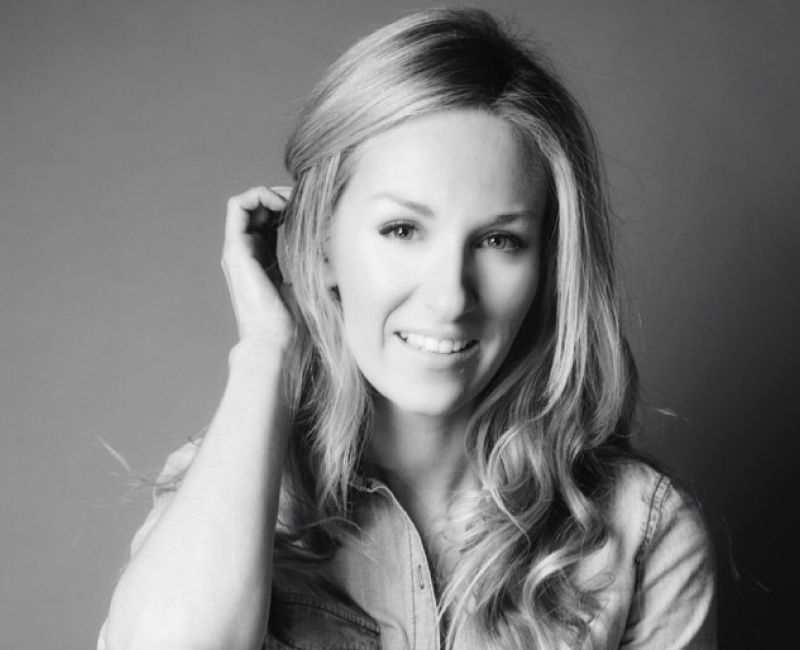
Lucy Clayton (English Literature, 2003) draws on years of experience and insight from her latest book to answer student and graduate career questions.
How do you negotiate a pay rise? Deal with imposter syndrome? Start a career in times like these?
“I've worked with young people throughout my career who were worried about the same things,” says Lucy Clayton, co-author of How to Go to Work: The Honest Advice No One Ever Tells You at the Start of Your Career. “So we decided to write it all down.”
In our latest My Leeds podcast episode, Lucy draws on years of experience and insight from her latest book to answer your questions.
We also hear from Lucy’s mentee, theatre and performance student Hannah Rooney, as they discuss their mentoring relationship, and the importance of mentoring to them.
From a graduate role in advertising, to CEO of social enterprise Community Clothing, Lucy’s career has taken her across industries and borders. She is an accomplished event speaker (see Lucy’s TED talk) and was named in the Financial Times and HERoes Top 50 Champions of Women in Business in 2017.
Now, she turns her attention to supporting today’s graduates.
“It seemed odd to us that the book didn't already exist,” Lucy says. “One of the things we wanted to do was to shortcut a lot of the stuff that – as we say in the title of the book – no one ever tells you at the start of your career.”
“For example, people talk about ‘polish’. In recruitment that's code for ‘do you look and sound like me?’, which creates a barrier for people from certain backgrounds who haven't had a certain path in education or don’t have the connections to make their working life easier.”
“We wanted to level the playing field by being really honest about the stuff that people tend not to speak of.”
There is no generation better placed to take advantage of workplace change than people who are graduating right now.
Dealing with a pandemic
Our conversation with Lucy comes at a pertinent time. For many recent graduates, COVID-19 means starting a career during a period of great uncertainty, but Lucy points out that there are positives in that, too.
“It's a time of change, and I think that's exciting. There is no generation better placed to take advantage of workplace change than people who are graduating right now.”
One of those changes has been a switch to homeworking, which can be isolating for a new employee. Lucy outlines how that challenge might be overcome: “If you're sat at home on your own all day, it's really challenging and it would be ridiculous for me to suggest that isn't a really difficult thing to manage.”
“How do you absorb what would be happening around you in an office or a factory? So much of what we learn is through overhearing, and that's not scheduled as a Zoom call on a Wednesday at three o'clock. So I think the solution is to ask. You have to put time in with your direct reports or with colleagues that you admire and ask them for feedback.”
“On the positive side, we’ve got to acknowledge how much this shift means for things like accessibility, for flexible working, for not having to move to London and spend your entry level salary on a small flat and having a horrible time.”
“It will mean that more talent finds its way into great careers with fewer barriers.”
What about that pay rise?
One of the key topics covered in the book, and a delicate subject in the working world, is money. As a number of students asked Lucy: How do I negotiate a pay rise?
“I think the most useful tip is to track your progress from the start. Keep a note of the things you do that are good and have made a difference. If you have a dossier of your contributions to that business or that team, then that should form the basis of any conversation about pay.”
“You're demonstrating your worth through your actions. Having a vague feeling that you've done a great job is great and probably perfectly true, but it isn't as powerful.”
The power of mentoring
As a Leeds mentor, Lucy is a strong advocate of its value to any student and professional. “I didn't have an obvious mentor at university or before. I think I would have really benefited from someone who could have helped me directionally and given me a bit of confidence.”
“The word mentor is scary and big and often puts people off, but it's also important to say that you won't always have the same mentor, and it doesn’t need to have a capital M.”
“I have two people who are mentoring me – they probably don't even know they're mentoring me – in two different areas of my career, one in radio and one in TV. And I use them to help me with the stuff that I don't know.”
“Try to think of mentorship as an ongoing and ever changing dynamic in your working life.”
Further information
Tune into the full My Leeds podcast episode to hear more from Lucy, and follow her on social media @mslucyclayton.
And don’t forget to pick up your copy of How to Go to Work: The Honest Advice No One Ever Tells You at the Start of Your Career.
To listen to more podcasts from the Alumni team at the University of Leeds, subscribe to the My Leeds Story podcast.